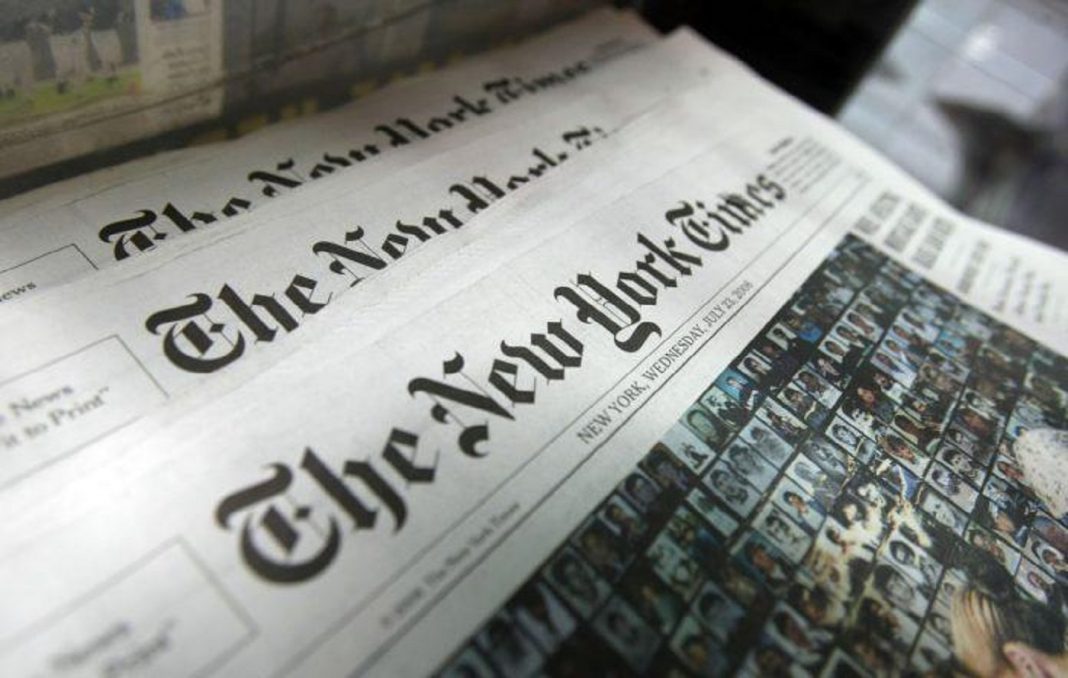Jennifer Egan: Why PEN America is Suing Donald Trump
"Trump's vitriol against reporters has made political journalism a more dangerous practice."
On Tuesday, PEN America, of which I am president, filed suit against President Trump for using his presidential powers to attempt to silence and punish journalists and news outlets whose coverage displeases him. PEN America is a literary nonprofit comprised of writers, journalists, editors and translators—all united around the goal of celebrating writing and defending the freedoms that make it possible. We believe (along with our legal representatives, Protect Democracy and the Yale Law School Media Freedom and Information Clinic) that President Trump’s threats and punitive actions infringe upon the First Amendment Rights of our members. Worse, they imperil our free press—one of the cornerstones of a healthy democracy.
President Trump is famously prone to captious bluster—a fact that endears him to fans and appalls detractors. He hurls insults blithely, instinctively, and the press is only one of his myriad targets. This is not to say that routine public denigration by the President of the United States has no impact; on the contrary, Trump’s repeated cries of “fake news” have eroded faith in the press and smudged the distinction between truth and propaganda. His vitriol against reporters has made political journalism a more dangerous practice, with journalists receiving death threats and requiring bodyguards at political rallies.
None of that is why we’re suing. Trump’s speech—like that of every American—is protected by the First Amendment. But the president has done more than vent against the press: he has threatened to use his presidential powers to stymie reporters and news organizations, and has followed through on those threats—by barring from the Rose Garden a reporter whose question he disliked; by ordering the Postal Service to investigate Amazon’s shipping rates in retaliation for negative coverage by the WASHINGTON POST (both are owned by Jeff Bezos); by legally challenging an unremarkable vertical merger between AT&T and Time Warner, the parent company of CNN, as punishment for negative coverage. Trump’s threats and actions impede the First Amendment rights of journalists and news organizations, and are therefore illegal. We are suing to make him to stop.
PEN America is a non-partisan organization. Founded nearly a hundred years ago in England between the Wars, it was built on a belief in the power of writers, and literary values, to help solve the world’s problems. At the first dinner of its American chapter, held in 1922, a letter was read aloud from John Galsworthy, PEN International’s first president, who wrote to the assembled members: “We writers are in some sort trustees for human nature; if we are narrow and prejudiced we harm the human race. And the better we know each other . . . the greater the chance for human happiness in a world not, as yet, too happy.”
“Few would dispute that the suppression of writers presages deep and ominous problems in a society.”
These sentiments may sound quaint to contemporary ears; even the most optimistic among us is unlikely to hold that geopolitical conflicts can be solved through writerly camaraderie. But few would dispute that the suppression of writers presages deep and ominous problems in a society.
PEN America has spent decades fighting for writers jailed by governments around the world who deemed their voices threatening and wanted them silenced: in China, Russia, Iran, Egypt, Saudi Arabia, Myanmar, and scores of other countries. Our successes, when they come, are testament to the power of writers united in support of other writers against oppressive regimes.
President Trump’s frank admiration for authoritarian rulers makes his efforts to hobble a free press here in America all the more alarming. His actions conform to what some call an “authoritarian playbook” for modern tyrants, in which the curtailing of free speech occurs subtly and gradually through a system of governmental rewards and punishments that encourage cooperation and gradually chill opposing voices.
While American journalists have thus far responded bravely and vigorously in their reporting on the Trump Administration, a recent survey of PEN America members suggests that journalists are aware of the possibility of reprisals when they write negatively about the president.
That should never happen in America, where free speech was conceived of, according to Ben Franklin, as the “principal pillar” of democracy. A leader with “the power to punish for words,” Franklin wrote, “would be armed with a weapon the most destructive and terrible.”
Words are powerful weapons too—as Trump’s efforts to quash them attest. In keeping with PEN America’s founding mission, we mean to stand together and show our strength.







